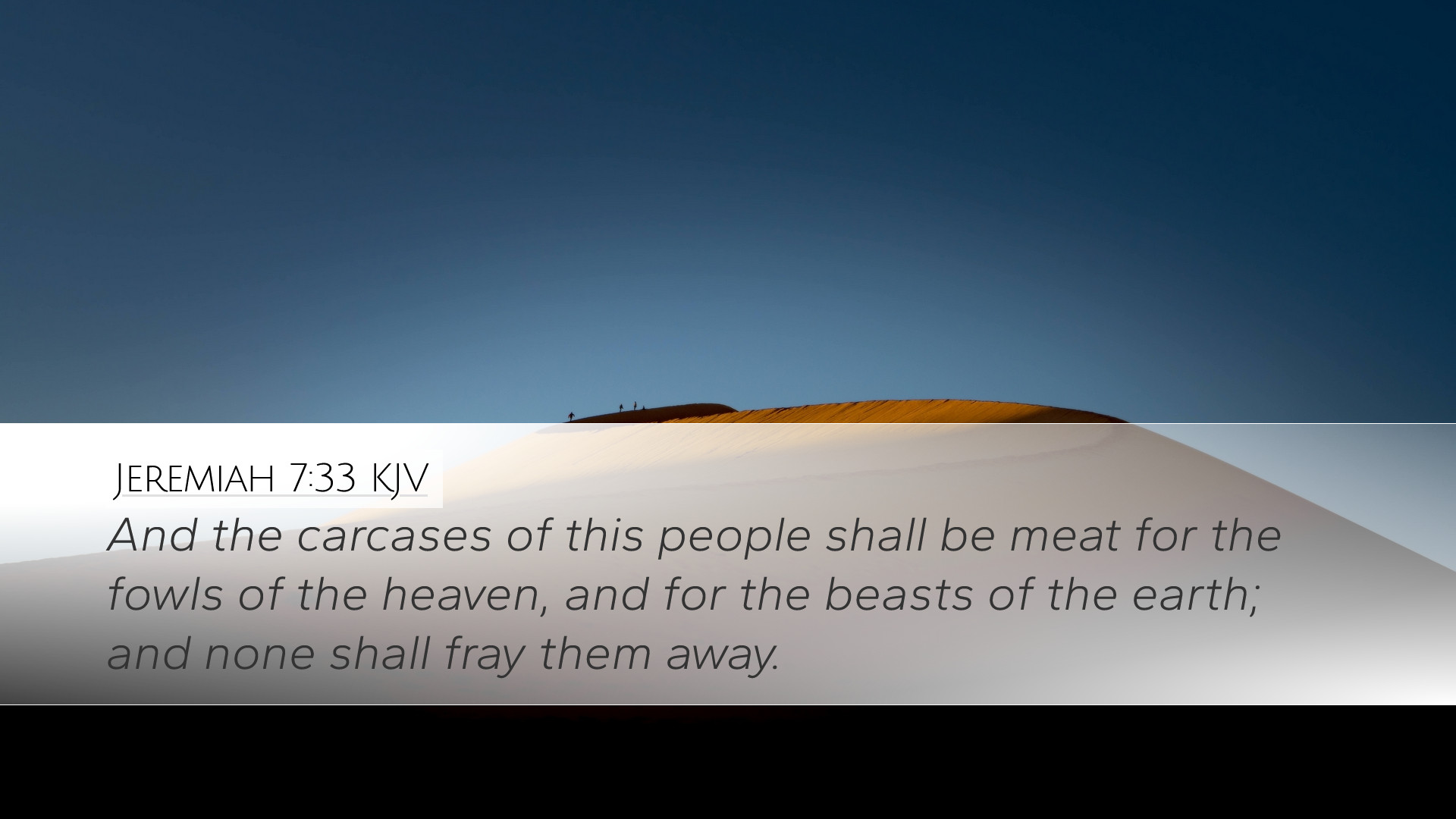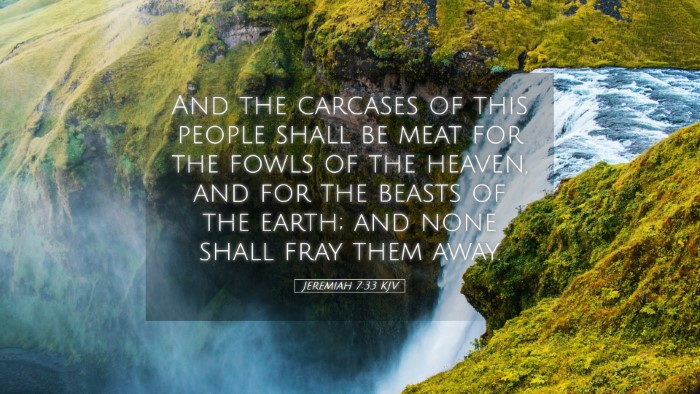Commentary on Jeremiah 7:33
Jeremiah 7:33 states:
“And the carcasses of this people shall be meat for the fowls of the heaven, and for the beasts of the earth; and none shall fray them away.”
This verse evokes a strong image of desolation and divine judgment, and it is imperative that we approach it with a theological lens that reflects its depth and ramifications within the context of biblical prophecy and God's covenant with Israel.
Contextual Background
To fully understand Jeremiah 7:33, it is essential to consider its surrounding context in Jeremiah's prophetic ministry. Jeremiah is known as the weeping prophet, and his messages are filled with calls for repentance and warnings of impending judgment due to the people's idolatry and moral corruption.
As part of the broader context, Jeremiah 7 is often referentially linked to the Temple Sermon (Jeremiah 7:1-15), where the prophet speaks from the gates of the Temple, emphasizing the futility of trusting in mere external forms of worship while the hearts of the people remain estranged from God.
Thematic Insights
Divine Judgment
Matthew Henry describes the striking imagery of the carcasses as a metaphor for the complete rejection of the people by God. This act of judgment illustrates the gravity of their sins and serves as a warning that the people will face the consequences of their rebellion against the covenant relationship established with the Almighty.
Symbolism of Death and Desolation
Adam Clarke elaborates on the symbolism found within the verse, indicating that the carcasses being left as food for fowls and beasts represents utter disgrace and the loss of dignity. It symbolizes the complete dissolution of the societal structure among the Israelites, as the dead bodies will serve as grim reminders of their unfaithfulness.
Universal Accountability
Furthermore, Albert Barnes highlights a fundamental theological principle illustrated in this passage: human beings are accountable for their actions. The judgment depicted serves as a somber reminder that God's justice must prevail, and no amount of ritualistic worship can substitute for genuine obedience and a heart aligned with God's will.
Historical Context and Application
This verse should be seen through the historical lens of ancient Israel, particularly at a time when the covenant community faced serious threats both from within and without. The backdrop of Babylonian captivity looms large, a consequence of Israel's continual turning away from God towards idolatry.
Henry notes that the imagery employed signals not only immediate retribution but also carries prophetic significance regarding the future. The stark nature of this prophecy from Jeremiah aimed to awaken the people to the reality of their spiritual conditions and the urgency for true repentance.
Modern Relevance
For contemporary pastors, students, and theologians, the implications of Jeremiah 7:33 extend beyond ancient Israel. It challenges modern congregations to examine their lives in light of God's holiness and the seriousness of sin. The certainty of judgment should elicit a deeper commitment to personal and corporate repentance.
Barnes stands by the thought that the assurance of God's righteousness signifies that though judgment is harsh, it is also redemptive in nature. True acknowledgment of sin leads to awareness of grace, reminding believers of their need for salvation through Christ.
Conclusion
The poignant declaration in Jeremiah 7:33 must not be overlooked in its theological depth. It serves as a powerful reminder of the severe realities of divine accountability, the consequences of forsaking true worship, and the hope for redemption offered through genuine contrition.
As biblical scholars and leaders reflect on this verse, may it lead to a renewed commitment to uphold justice, preach grace effectively, and cultivate a community that honors God with authenticity.
Reflection Questions
- What are the parallels between Israel's situation and contemporary church practices?
- How can we cultivate a heart that genuinely seeks to honor God beyond outward appearances?
- In what ways can the messages of judgment in Jeremiah guide our understanding of God’s justice and mercy today?


